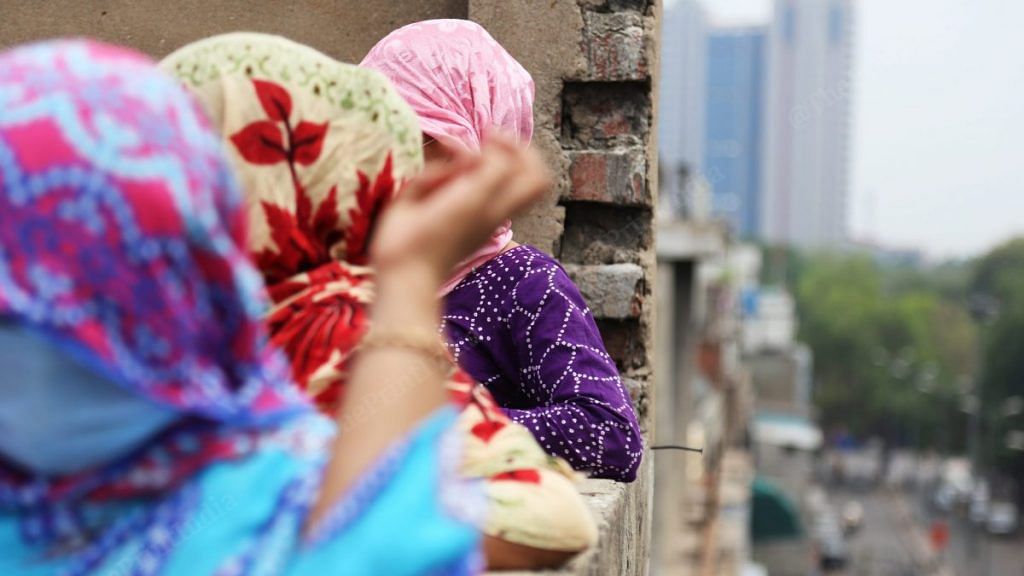New Delhi: A recent study conducted in Pune has found that 99 per cent of commercial sex workers in the city are now looking for alternative employment opportunities in the wake of the coronavirus pandemic.
The study was conducted by Asha Care Trust, a forum that works towards the welfare of sex workers. The trust is based in Pune’s Budhwar Peth, which is India’s third-largest red-light area, housing nearly 3,000 commercial sex workers in around 700 brothels. The study included the responses of 300 commercial sex workers in the area.
The report noted how, given that the demand for sexual services reduced drastically during the lockdown, sex workers were forced to borrow money for survival. “Over 85 per cent of the workers have taken loans and over 98 per cent of them have taken them from their brothel owners, managers and moneylenders, subjecting themselves to further exploitation,” it read.
“What is more alarming is that 87% of workers stated that even before the pandemic struck, their incomes were not sufficient to support themselves or their families. Key factors like lack of education and employable skills compel them to depend on one source of income, ie earning through flesh trade, and remain trapped in a vicious circle,” the report said, adding that almost all the workers surveyed are keen to explore alternative sources of livelihood.
The report also detailed several socio-economic factors of these sex workers. While 82 per cent of them fall in the age group of 25-45 years, some were forced into the trade when they were minors. Over 84 per cent have not had any formal education and the rest were pushed into the flesh trade before they finished high school.
The survey also noted that while 92.7 per cent said they fear resuming sex work, they are also worried about starvation.
The Asha Care Trust, in the survey report, suggested that the district and the state administration can launch basic skill-training programmes under the National Urban Livelihood Mission to upskill women in areas such as data entry, telecalling, sales, tailoring and working with NGOs.
Also read: Anti-trafficking Bill has scope for confusion. Here’s what will work: BJP MP Meenakshi Lekhi
